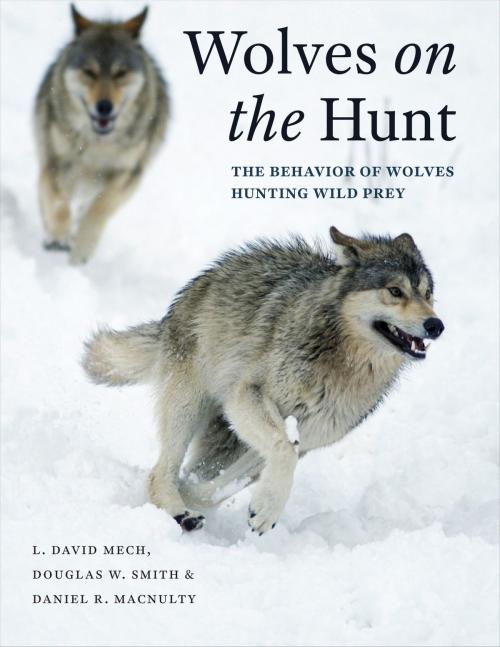Wolves on the Hunt
The Behavior of Wolves Hunting Wild Prey
Nonfiction, Science & Nature, Science, Biological Sciences, Zoology| Author: | L. David Mech, Douglas W. Smith, Daniel R. MacNulty | ISBN: | 9780226255286 |
| Publisher: | University of Chicago Press | Publication: | May 22, 2015 |
| Imprint: | University of Chicago Press | Language: | English |
| Author: | L. David Mech, Douglas W. Smith, Daniel R. MacNulty |
| ISBN: | 9780226255286 |
| Publisher: | University of Chicago Press |
| Publication: | May 22, 2015 |
| Imprint: | University of Chicago Press |
| Language: | English |
The interactions between apex predators and their prey are some of the most awesome and meaningful in nature—displays of strength, endurance, and a deep coevolutionary history. And there is perhaps no apex predator more impressive and important in its hunting—or more infamous, more misjudged—than the wolf. Because of wolves’ habitat, speed, and general success at evading humans, researchers have faced great obstacles in studying their natural hunting behaviors. The first book to focus explicitly on wolf hunting of wild prey, Wolves on the Hunt seeks to fill these gaps in our knowledge and understanding.
Combining behavioral data, thousands of hours of original field observations, research in the literature, a wealth of illustrations, and—in the e-book edition and online—video segments from cinematographer Robert K. Landis, the authors create a compelling and complex picture of these hunters. The wolf is indeed an adept killer, able to take down prey much larger than itself. While adapted to hunt primarily hoofed animals, a wolf—or especially a pack of wolves—can kill individuals of just about any species. But even as wolves help drive the underlying rhythms of the ecosystems they inhabit, their evolutionary prowess comes at a cost: wolves spend one-third of their time hunting—the most time consuming of all wolf activities—and success at the hunt only comes through traveling long distances, persisting in the face of regular failure, detecting and taking advantage of deficiencies in the physical condition of individual prey, and through ceaseless trial and error, all while risking injury or death.
By describing and analyzing the behaviors wolves use to hunt and kill various wild prey—including deer, moose, caribou, elk, Dall sheep, mountain goats, bison, musk oxen, arctic hares, beavers, and others—Wolves on the Hunt provides a revelatory portrait of one of nature’s greatest hunters.
The interactions between apex predators and their prey are some of the most awesome and meaningful in nature—displays of strength, endurance, and a deep coevolutionary history. And there is perhaps no apex predator more impressive and important in its hunting—or more infamous, more misjudged—than the wolf. Because of wolves’ habitat, speed, and general success at evading humans, researchers have faced great obstacles in studying their natural hunting behaviors. The first book to focus explicitly on wolf hunting of wild prey, Wolves on the Hunt seeks to fill these gaps in our knowledge and understanding.
Combining behavioral data, thousands of hours of original field observations, research in the literature, a wealth of illustrations, and—in the e-book edition and online—video segments from cinematographer Robert K. Landis, the authors create a compelling and complex picture of these hunters. The wolf is indeed an adept killer, able to take down prey much larger than itself. While adapted to hunt primarily hoofed animals, a wolf—or especially a pack of wolves—can kill individuals of just about any species. But even as wolves help drive the underlying rhythms of the ecosystems they inhabit, their evolutionary prowess comes at a cost: wolves spend one-third of their time hunting—the most time consuming of all wolf activities—and success at the hunt only comes through traveling long distances, persisting in the face of regular failure, detecting and taking advantage of deficiencies in the physical condition of individual prey, and through ceaseless trial and error, all while risking injury or death.
By describing and analyzing the behaviors wolves use to hunt and kill various wild prey—including deer, moose, caribou, elk, Dall sheep, mountain goats, bison, musk oxen, arctic hares, beavers, and others—Wolves on the Hunt provides a revelatory portrait of one of nature’s greatest hunters.















